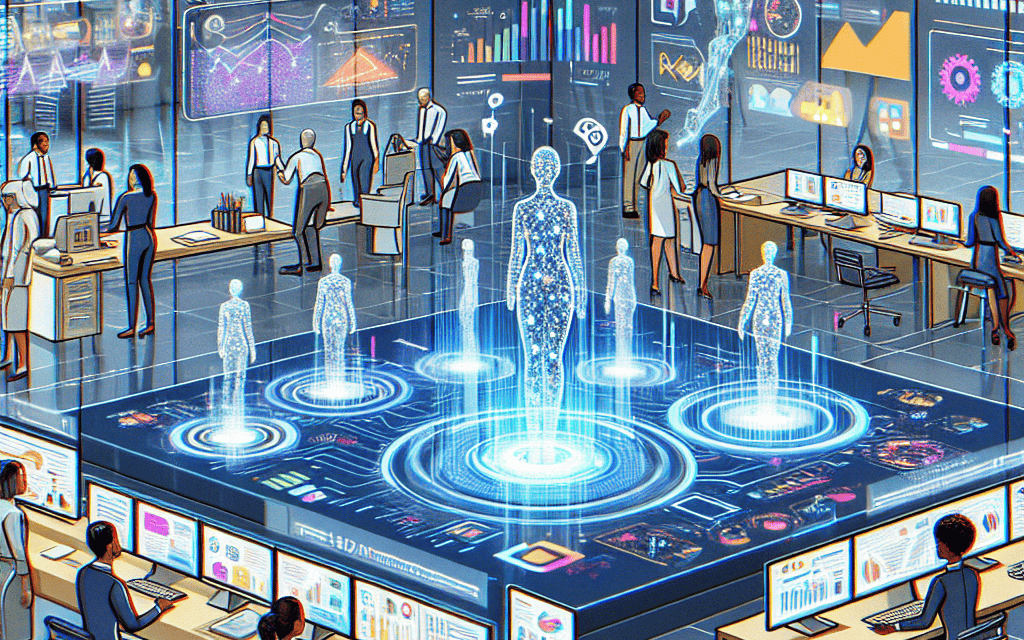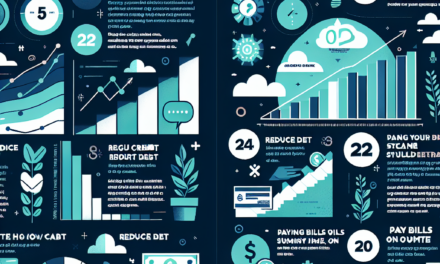“Unleash Innovation: Microsoft Empowers You to Automate with AI Agents this November.”
Introduction
In November, Microsoft is set to revolutionize the way businesses handle routine tasks by empowering clients to create their own AI agents. This initiative is part of Microsoft’s broader strategy to integrate artificial intelligence into everyday business operations, enabling companies to streamline processes, enhance productivity, and reduce operational costs. By providing tools and platforms that allow clients to develop customized AI solutions, Microsoft is facilitating a new era of automation where repetitive tasks can be efficiently managed by intelligent agents. This move not only underscores Microsoft’s commitment to innovation but also highlights its role in driving digital transformation across industries.
Introduction To Microsoft’s AI Agent Initiative
In an era where artificial intelligence is rapidly transforming the landscape of business operations, Microsoft is poised to take a significant leap forward with its latest initiative. Starting in November, the tech giant will empower its clients to create AI agents designed to handle routine tasks, marking a pivotal moment in the democratization of AI technology. This initiative is set to revolutionize how businesses approach task automation, offering a new level of efficiency and innovation.
The introduction of AI agents by Microsoft is not merely a technological advancement; it represents a strategic move to enhance productivity across various sectors. By enabling clients to develop their own AI agents, Microsoft is providing businesses with the tools to streamline operations, reduce human error, and allocate resources more effectively. This initiative is particularly timely, as organizations worldwide are increasingly seeking ways to optimize their workflows and remain competitive in a rapidly evolving market.
Central to this initiative is Microsoft’s commitment to accessibility and user-friendliness. The company has designed the AI agent creation process to be intuitive, ensuring that even those with limited technical expertise can participate. This approach aligns with Microsoft’s broader mission to make technology accessible to all, thereby fostering an inclusive environment where businesses of all sizes can benefit from AI advancements. By lowering the barriers to entry, Microsoft is not only expanding its reach but also encouraging innovation at the grassroots level.
Moreover, the AI agents developed through this initiative are expected to handle a wide array of routine tasks, from data entry and customer service inquiries to scheduling and inventory management. This versatility is a testament to the robust capabilities of Microsoft’s AI technology, which is built on years of research and development. By automating these tasks, businesses can free up valuable human resources to focus on more strategic and creative endeavors, ultimately driving growth and innovation.
In addition to enhancing operational efficiency, Microsoft’s AI agent initiative also addresses the growing demand for personalized customer experiences. By leveraging AI, businesses can tailor their interactions with customers, providing timely and relevant responses that enhance satisfaction and loyalty. This capability is particularly crucial in today’s digital age, where customer expectations are higher than ever, and personalized service is a key differentiator.
Furthermore, Microsoft’s initiative underscores the importance of ethical AI development. The company has implemented stringent guidelines to ensure that the AI agents operate within ethical boundaries, prioritizing transparency, accountability, and fairness. This commitment to ethical AI is crucial in building trust with clients and end-users, as concerns about data privacy and algorithmic bias continue to dominate discussions around AI technology.
As businesses prepare to embrace this new wave of AI-driven automation, Microsoft is also offering comprehensive support and resources to facilitate the transition. Through workshops, training sessions, and dedicated support teams, the company is ensuring that its clients are well-equipped to harness the full potential of AI agents. This holistic approach not only empowers businesses to succeed but also reinforces Microsoft’s position as a leader in the AI space.
In conclusion, Microsoft’s initiative to enable clients to create AI agents for routine tasks marks a significant milestone in the evolution of business automation. By providing accessible, versatile, and ethically sound AI solutions, Microsoft is paving the way for a future where technology and human ingenuity work hand in hand to drive progress. As November approaches, businesses around the world eagerly anticipate the opportunities that this groundbreaking initiative will unlock.
How Microsoft Empowers Clients With AI Tools
In an era where artificial intelligence is rapidly transforming the landscape of business operations, Microsoft is taking a significant step forward by empowering its clients to create AI agents for routine tasks starting this November. This initiative is part of Microsoft’s broader strategy to integrate AI into everyday business processes, thereby enhancing efficiency and productivity. By providing clients with the tools to develop their own AI agents, Microsoft is not only democratizing access to advanced technology but also fostering innovation across various industries.
The introduction of these AI tools is set to revolutionize how businesses handle routine tasks. Traditionally, such tasks have been time-consuming and prone to human error. However, with the advent of AI agents, companies can automate these processes, allowing employees to focus on more strategic and creative endeavors. This shift not only improves operational efficiency but also contributes to employee satisfaction by reducing the burden of monotonous tasks.
Microsoft’s AI tools are designed to be user-friendly, ensuring that even those with limited technical expertise can harness the power of artificial intelligence. By offering a range of customizable templates and intuitive interfaces, Microsoft enables clients to tailor AI agents to their specific needs. This flexibility is crucial in a diverse business environment where one-size-fits-all solutions are often inadequate. Consequently, companies can develop AI agents that align with their unique operational requirements, thereby maximizing the benefits of automation.
Moreover, Microsoft’s commitment to security and privacy is evident in the design of these AI tools. In an age where data breaches and privacy concerns are prevalent, Microsoft has prioritized the protection of client data. The AI agents are equipped with robust security features, ensuring that sensitive information is safeguarded against unauthorized access. This focus on security not only builds trust with clients but also encourages wider adoption of AI technologies.
In addition to enhancing operational efficiency, Microsoft’s AI tools have the potential to drive innovation. By automating routine tasks, companies can allocate more resources to research and development, leading to the creation of new products and services. Furthermore, the insights generated by AI agents can inform strategic decision-making, providing businesses with a competitive edge in the market. As a result, companies that embrace these tools are likely to experience accelerated growth and success.
The launch of Microsoft’s AI tools also underscores the company’s commitment to sustainability. By optimizing processes and reducing waste, AI agents contribute to more sustainable business practices. This aligns with Microsoft’s broader environmental goals and reflects the growing importance of sustainability in the corporate world. As businesses increasingly prioritize environmental responsibility, the integration of AI tools can play a pivotal role in achieving these objectives.
In conclusion, Microsoft’s initiative to empower clients with AI tools for routine tasks marks a significant milestone in the evolution of business operations. By providing accessible, secure, and customizable solutions, Microsoft is enabling companies to harness the power of artificial intelligence to enhance efficiency, drive innovation, and promote sustainability. As businesses begin to implement these tools, the potential for transformation is immense, paving the way for a future where AI is an integral part of everyday operations. Through this initiative, Microsoft is not only shaping the future of business but also reinforcing its position as a leader in the technology industry.
Key Features Of Microsoft’s AI Agents For Routine Tasks
Starting in November, Microsoft is set to revolutionize the way businesses handle routine tasks by empowering clients to create AI agents tailored to their specific needs. This innovative development is part of Microsoft’s ongoing commitment to integrating artificial intelligence into everyday business operations, thereby enhancing efficiency and productivity. The AI agents are designed to perform a variety of routine tasks, allowing human employees to focus on more complex and strategic activities. This shift not only optimizes workflow but also fosters a more dynamic and innovative work environment.
One of the key features of Microsoft’s AI agents is their adaptability. These agents can be customized to fit the unique requirements of different industries and businesses. By leveraging machine learning algorithms, the AI agents can learn from data inputs and improve their performance over time. This adaptability ensures that the AI agents remain relevant and effective as business needs evolve. Furthermore, the integration of natural language processing capabilities allows these agents to understand and respond to human language, making interactions seamless and intuitive.
In addition to adaptability, Microsoft’s AI agents are designed with user-friendliness in mind. The platform provides a straightforward interface that enables clients to create and manage their AI agents with minimal technical expertise. This democratization of AI technology ensures that businesses of all sizes can benefit from automation without the need for extensive IT resources. Moreover, Microsoft offers comprehensive support and training resources to assist clients in maximizing the potential of their AI agents.
Security is another critical aspect of Microsoft’s AI agents. Recognizing the importance of data protection, Microsoft has implemented robust security measures to safeguard sensitive information. The AI agents operate within a secure framework that complies with industry standards and regulations, providing clients with peace of mind. Additionally, Microsoft continuously updates its security protocols to address emerging threats, ensuring that client data remains protected at all times.
The integration capabilities of Microsoft’s AI agents further enhance their appeal. These agents can seamlessly connect with existing Microsoft products and services, such as Office 365 and Azure, as well as third-party applications. This interoperability allows businesses to create a cohesive digital ecosystem where AI agents can access and process information from various sources. Consequently, businesses can achieve a higher level of automation and efficiency, as the AI agents can perform tasks across different platforms without interruption.
Moreover, Microsoft’s AI agents are designed to support collaboration and teamwork. By automating routine tasks, these agents free up time for employees to engage in more meaningful interactions and collaborative projects. The AI agents can also facilitate communication by managing schedules, sending reminders, and organizing meetings, thereby enhancing team productivity. This focus on collaboration underscores Microsoft’s commitment to creating technology that not only improves efficiency but also enriches the human experience in the workplace.
In conclusion, Microsoft’s introduction of AI agents for routine tasks marks a significant advancement in the realm of business automation. By offering adaptable, user-friendly, secure, and integrative solutions, Microsoft empowers clients to harness the power of AI to transform their operations. As businesses continue to navigate an increasingly digital landscape, the ability to automate routine tasks will be a crucial factor in maintaining competitiveness and driving innovation. Through these AI agents, Microsoft is not only enhancing productivity but also paving the way for a more efficient and collaborative future.
Benefits Of Using AI Agents In Business Operations

In the rapidly evolving landscape of business operations, the integration of artificial intelligence (AI) has become a pivotal factor in enhancing efficiency and productivity. Starting November, Microsoft is set to empower its clients with the ability to create AI agents specifically designed to handle routine tasks. This development marks a significant step forward in the utilization of AI technology, offering numerous benefits to businesses seeking to streamline their operations.
One of the primary advantages of employing AI agents in business operations is the automation of repetitive tasks. By delegating mundane and time-consuming activities to AI agents, companies can free up valuable human resources, allowing employees to focus on more strategic and creative endeavors. This shift not only enhances productivity but also fosters a more engaging and fulfilling work environment, as employees are relieved from the monotony of routine tasks.
Moreover, AI agents are capable of operating with remarkable speed and accuracy. Unlike their human counterparts, AI agents can process vast amounts of data in a fraction of the time, ensuring that tasks are completed efficiently and with minimal errors. This precision is particularly beneficial in industries where accuracy is paramount, such as finance and healthcare, where even minor errors can have significant consequences. By reducing the likelihood of human error, AI agents contribute to improved operational reliability and quality assurance.
In addition to speed and accuracy, AI agents offer the advantage of scalability. As businesses grow and their operational demands increase, AI agents can be easily scaled to accommodate the rising workload. This flexibility ensures that companies can maintain optimal performance levels without the need for substantial investments in additional human resources. Consequently, businesses can achieve cost savings while simultaneously enhancing their operational capabilities.
Furthermore, the implementation of AI agents facilitates enhanced data analysis and decision-making processes. AI agents are equipped with advanced algorithms that enable them to analyze complex datasets, identify patterns, and generate insights that might otherwise go unnoticed. This capability empowers businesses to make informed decisions based on data-driven evidence, ultimately leading to more effective strategies and improved outcomes. As a result, companies can gain a competitive edge in their respective markets by leveraging the analytical prowess of AI agents.
Transitioning to the customer service domain, AI agents can significantly enhance the quality and efficiency of interactions with clients. By handling routine inquiries and providing instant responses, AI agents ensure that customer queries are addressed promptly, thereby improving customer satisfaction and loyalty. Additionally, AI agents can operate around the clock, offering businesses the ability to provide continuous support without the constraints of traditional working hours. This 24/7 availability is particularly advantageous in today’s globalized economy, where businesses often serve clients across different time zones.
In conclusion, the introduction of AI agents by Microsoft represents a transformative opportunity for businesses to optimize their operations. By automating routine tasks, enhancing accuracy, and providing scalable solutions, AI agents offer a multitude of benefits that can drive efficiency and innovation. As companies increasingly embrace AI technology, they position themselves to thrive in an ever-competitive business environment, ultimately achieving greater success and sustainability. Through the strategic implementation of AI agents, businesses can unlock new levels of productivity and operational excellence, paving the way for a future where AI plays an integral role in shaping the business landscape.
Case Studies: Success Stories Of AI Agent Implementation
In recent years, the integration of artificial intelligence into business operations has become a pivotal strategy for companies seeking to enhance efficiency and innovation. Microsoft, a leader in technological advancements, has taken a significant step forward by empowering its clients to create AI agents for routine tasks starting November. This initiative is poised to revolutionize how businesses operate, offering a glimpse into the future of work where AI and human collaboration are seamlessly intertwined. Several case studies have already demonstrated the transformative potential of AI agents, showcasing success stories that highlight the benefits and practical applications of this technology.
One notable example is a multinational retail corporation that implemented AI agents to streamline its customer service operations. Prior to the integration of AI, the company faced challenges in managing high volumes of customer inquiries, leading to delays and decreased customer satisfaction. By deploying AI agents, the company was able to automate responses to frequently asked questions, significantly reducing response times and freeing up human agents to handle more complex issues. This not only improved customer satisfaction but also allowed the company to reallocate resources more efficiently, ultimately enhancing overall productivity.
Transitioning to another sector, a financial services firm utilized AI agents to optimize its data analysis processes. Traditionally, the firm relied on manual data entry and analysis, which was both time-consuming and prone to human error. With the introduction of AI agents, the firm automated data collection and analysis, enabling real-time insights and more accurate forecasting. This shift not only improved decision-making processes but also provided the firm with a competitive edge in the market. The success of this implementation underscores the potential of AI agents to transform data-driven industries by enhancing accuracy and efficiency.
Moreover, a healthcare provider leveraged AI agents to manage appointment scheduling and patient follow-ups. The healthcare industry often grapples with administrative burdens that can detract from patient care. By employing AI agents, the provider was able to automate appointment reminders and follow-up communications, ensuring that patients received timely information and reducing the administrative load on staff. This allowed healthcare professionals to focus more on patient care, improving the overall quality of service. The case study illustrates how AI agents can be instrumental in alleviating administrative challenges in healthcare, ultimately leading to better patient outcomes.
Furthermore, a logistics company adopted AI agents to optimize its supply chain operations. The company faced challenges in managing inventory levels and predicting demand fluctuations. By integrating AI agents, the company was able to analyze vast amounts of data to predict demand patterns accurately and adjust inventory levels accordingly. This not only minimized waste but also ensured that products were available when needed, enhancing customer satisfaction and reducing operational costs. The success of this implementation highlights the potential of AI agents to revolutionize supply chain management by providing real-time insights and improving operational efficiency.
In conclusion, the empowerment of clients to create AI agents for routine tasks by Microsoft marks a significant milestone in the evolution of business operations. The success stories from various industries demonstrate the transformative potential of AI agents, showcasing their ability to enhance efficiency, accuracy, and customer satisfaction. As more companies embrace this technology, it is anticipated that AI agents will become an integral part of business strategies, driving innovation and growth across sectors. The future of work is undoubtedly being reshaped by AI, and Microsoft’s initiative is at the forefront of this exciting transformation.
Future Prospects Of AI Agents In The Workplace
In an era where artificial intelligence is rapidly transforming the workplace, Microsoft is poised to take a significant step forward by empowering its clients to create AI agents for routine tasks starting this November. This initiative is set to revolutionize how businesses operate, offering a glimpse into the future prospects of AI agents in the workplace. As organizations increasingly seek to optimize efficiency and productivity, the introduction of customizable AI agents presents a promising solution to streamline operations and reduce the burden of repetitive tasks on human employees.
The potential of AI agents in the workplace is vast, as they are designed to handle a variety of routine tasks that typically consume valuable time and resources. By automating these processes, businesses can redirect their human workforce towards more strategic and creative endeavors, thereby enhancing overall productivity. Microsoft’s initiative allows clients to tailor AI agents to their specific needs, ensuring that these digital assistants are not only efficient but also aligned with the unique requirements of each organization. This customization capability is a key factor in the anticipated widespread adoption of AI agents across various industries.
Moreover, the integration of AI agents into the workplace is expected to foster a more dynamic and flexible work environment. As these agents take on mundane tasks, employees can focus on higher-level responsibilities that require critical thinking and problem-solving skills. This shift not only enhances job satisfaction but also encourages innovation, as workers are freed from the constraints of routine duties. Furthermore, AI agents can operate around the clock, providing continuous support and ensuring that essential tasks are completed promptly, even outside of regular business hours.
In addition to improving efficiency, AI agents offer the potential for significant cost savings. By automating routine tasks, businesses can reduce the need for additional staff, thereby lowering labor costs. This financial benefit is particularly appealing to small and medium-sized enterprises that may have limited resources. Furthermore, AI agents can help minimize errors associated with manual processes, leading to improved accuracy and reliability in task execution. This reduction in errors can translate into substantial savings, as businesses can avoid costly mistakes and rework.
As we look to the future, the role of AI agents in the workplace is likely to expand beyond routine tasks. With advancements in machine learning and natural language processing, these agents are expected to become more sophisticated, capable of handling complex tasks and making informed decisions. This evolution will further enhance their value to businesses, as they become integral components of organizational operations. However, it is essential to consider the ethical implications of increased AI integration, particularly concerning data privacy and security. As AI agents become more prevalent, businesses must ensure that they implement robust measures to protect sensitive information and maintain compliance with regulatory standards.
In conclusion, Microsoft’s initiative to empower clients to create AI agents for routine tasks marks a significant milestone in the evolution of workplace technology. By offering customizable solutions, Microsoft is paving the way for businesses to harness the full potential of AI, driving efficiency, innovation, and cost savings. As AI agents continue to evolve, their role in the workplace will undoubtedly expand, offering exciting possibilities for the future of work. However, it is crucial for organizations to navigate this transition thoughtfully, balancing the benefits of AI integration with the need to address ethical considerations and safeguard data privacy.
Getting Started With Microsoft’s AI Agent Platform
In an era where artificial intelligence is rapidly transforming the landscape of business operations, Microsoft is taking a significant step forward by empowering its clients to create AI agents for routine tasks starting this November. This initiative is set to revolutionize how businesses approach automation, offering a platform that is both accessible and robust. As organizations increasingly seek to streamline operations and enhance productivity, Microsoft’s AI agent platform emerges as a pivotal tool in achieving these objectives.
The platform is designed to be user-friendly, allowing clients with varying levels of technical expertise to develop AI agents tailored to their specific needs. By providing a suite of intuitive tools and resources, Microsoft ensures that even those with limited programming experience can harness the power of AI. This democratization of technology is a testament to Microsoft’s commitment to making advanced solutions available to a broader audience, thereby fostering innovation across industries.
Moreover, the platform’s versatility is one of its most compelling features. It supports a wide range of applications, from automating customer service interactions to managing internal workflows. This flexibility enables businesses to deploy AI agents in diverse scenarios, optimizing processes and freeing up human resources for more strategic tasks. As a result, companies can achieve greater efficiency and focus on core competencies, ultimately driving growth and competitiveness in their respective markets.
Transitioning to the technical aspects, Microsoft’s AI agent platform is built on a foundation of cutting-edge technology. It leverages the latest advancements in machine learning and natural language processing, ensuring that the AI agents are not only capable of performing tasks but also of understanding and responding to complex queries. This sophistication allows for a more seamless integration into existing systems, minimizing disruptions and maximizing the benefits of automation.
Furthermore, security and privacy are paramount considerations in the design of the platform. Microsoft has implemented robust measures to protect sensitive data, ensuring that clients can deploy AI agents with confidence. This focus on security is crucial in an age where data breaches and cyber threats are prevalent, providing peace of mind to businesses that their information is safeguarded.
In addition to these technical capabilities, Microsoft offers comprehensive support and training to assist clients in getting started with the platform. This includes detailed documentation, tutorials, and access to a community of experts who can provide guidance and answer questions. By offering these resources, Microsoft not only facilitates the initial setup but also encourages continuous learning and improvement, enabling clients to fully realize the potential of their AI agents.
As businesses prepare to adopt this innovative platform, it is essential to consider the broader implications of AI integration. While the benefits are substantial, it is important to approach automation thoughtfully, ensuring that it complements human efforts rather than replacing them. By fostering a collaborative environment where AI and human intelligence work in tandem, organizations can achieve a harmonious balance that enhances overall performance.
In conclusion, Microsoft’s initiative to empower clients to create AI agents for routine tasks marks a significant milestone in the evolution of business automation. By providing a platform that is both accessible and sophisticated, Microsoft is enabling organizations to harness the power of AI in a way that is secure, efficient, and transformative. As we move into this new era of technological advancement, the potential for innovation and growth is boundless, promising a future where routine tasks are seamlessly managed by intelligent agents, allowing businesses to focus on what truly matters.
Q&A
1. **What is Microsoft introducing in November?**
Microsoft is introducing tools that empower clients to create AI agents for routine tasks.
2. **What is the purpose of these AI agents?**
The AI agents are designed to automate and handle routine tasks, improving efficiency and productivity.
3. **Who can benefit from these AI agents?**
Businesses and organizations looking to streamline operations and reduce manual workload can benefit from these AI agents.
4. **What technology underpins these AI agents?**
These AI agents are likely powered by Microsoft’s advancements in artificial intelligence and machine learning technologies.
5. **How can clients create these AI agents?**
Clients can use Microsoft’s tools and platforms, such as Azure AI, to develop and deploy their custom AI agents.
6. **What types of tasks can these AI agents perform?**
The AI agents can perform a variety of routine tasks, such as data entry, customer service interactions, and scheduling.
7. **What is the expected impact of these AI agents on businesses?**
The AI agents are expected to enhance operational efficiency, reduce costs, and allow employees to focus on more strategic tasks.
Conclusion
In November, Microsoft is set to empower its clients by enabling them to create AI agents designed to handle routine tasks. This initiative is part of Microsoft’s broader strategy to integrate artificial intelligence into everyday business operations, enhancing productivity and efficiency. By providing tools and platforms for clients to develop customized AI solutions, Microsoft aims to streamline workflows, reduce manual effort, and allow businesses to focus on more strategic activities. This move not only underscores Microsoft’s commitment to innovation but also positions the company as a leader in the democratization of AI technology, making it accessible and beneficial for a wide range of industries and applications.





